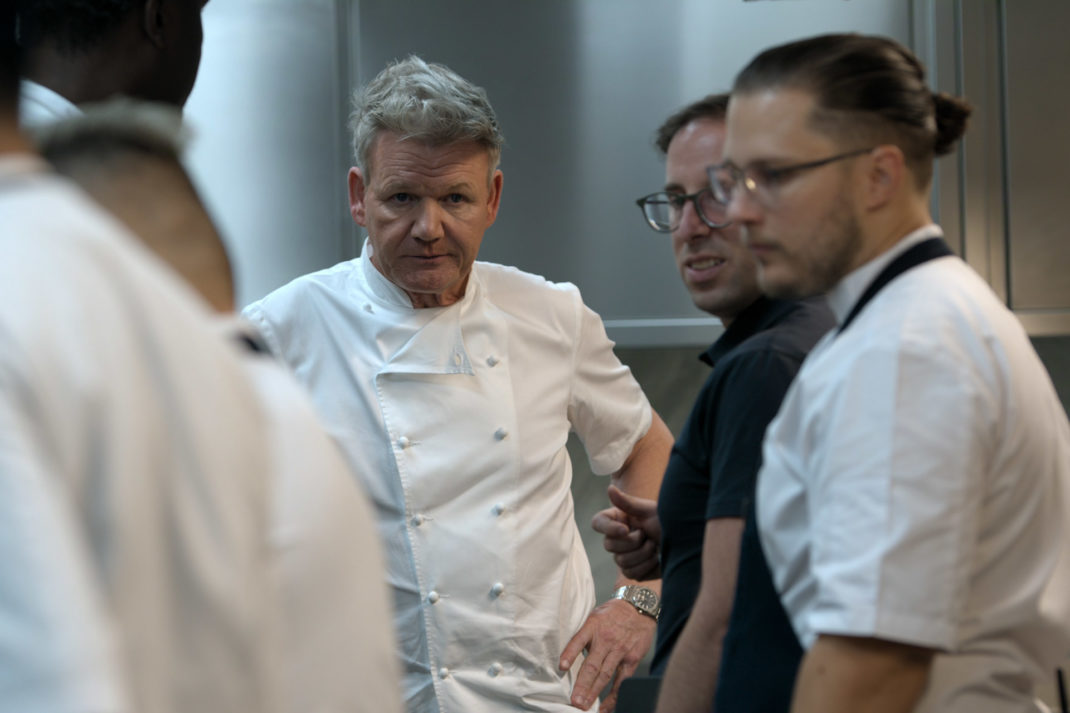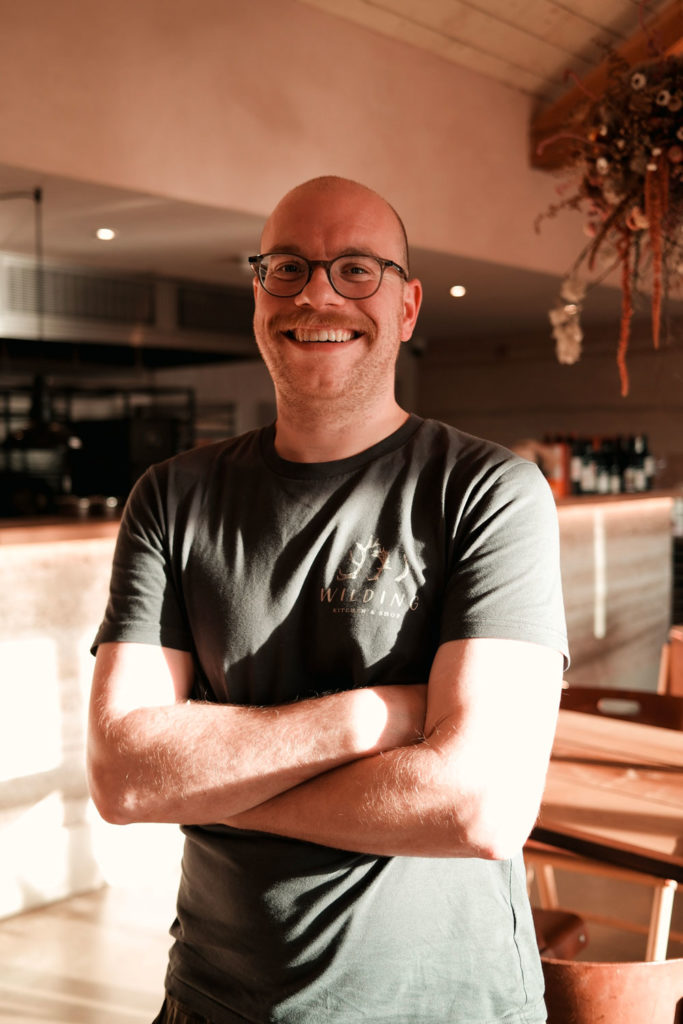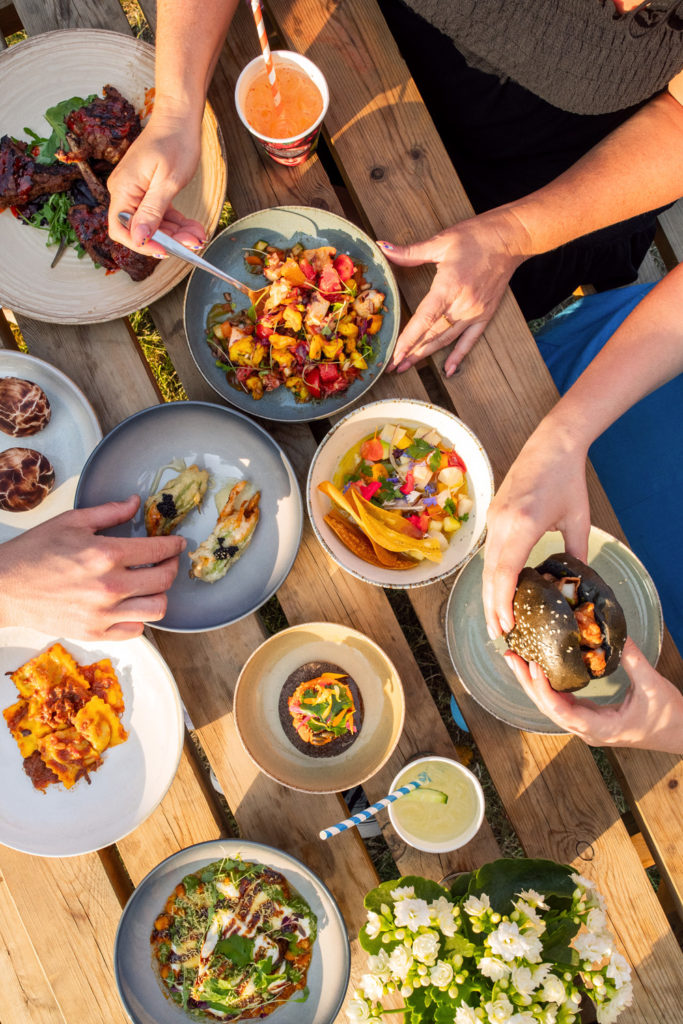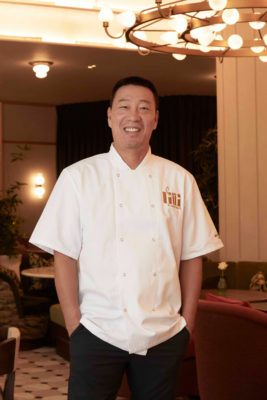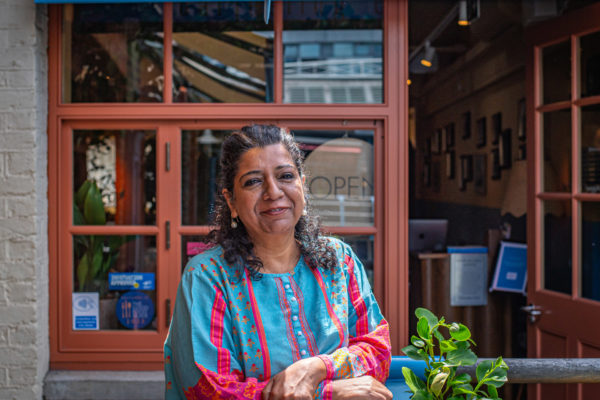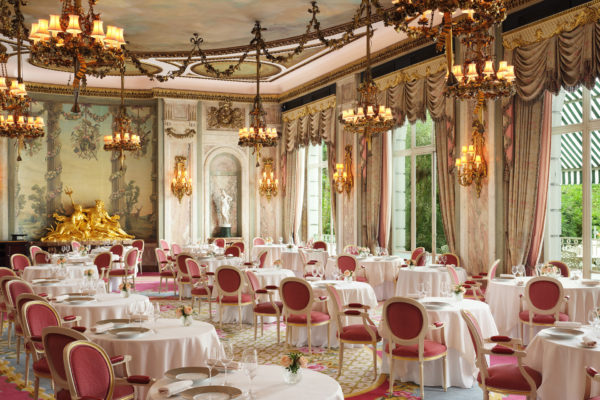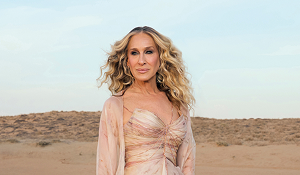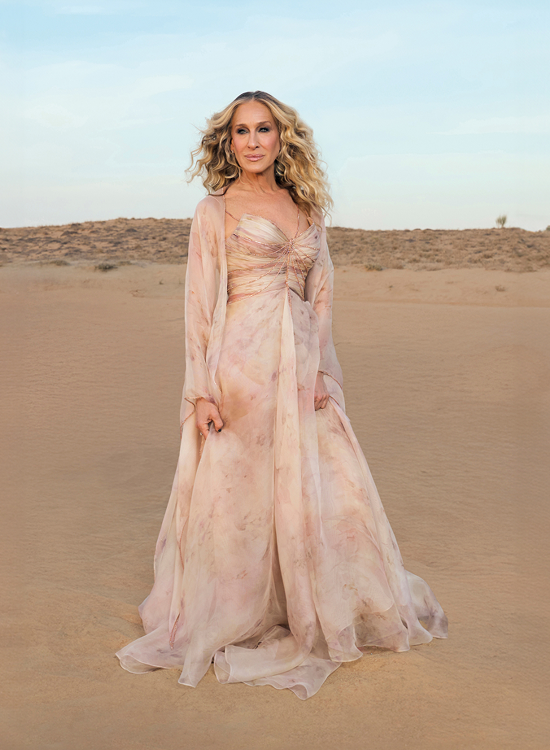Adejoké Bakare On Becoming The UK’s First Black Female Chef To Win A Michelin Star
By
2 months ago
We meet the chef behind London favourite Chishuru
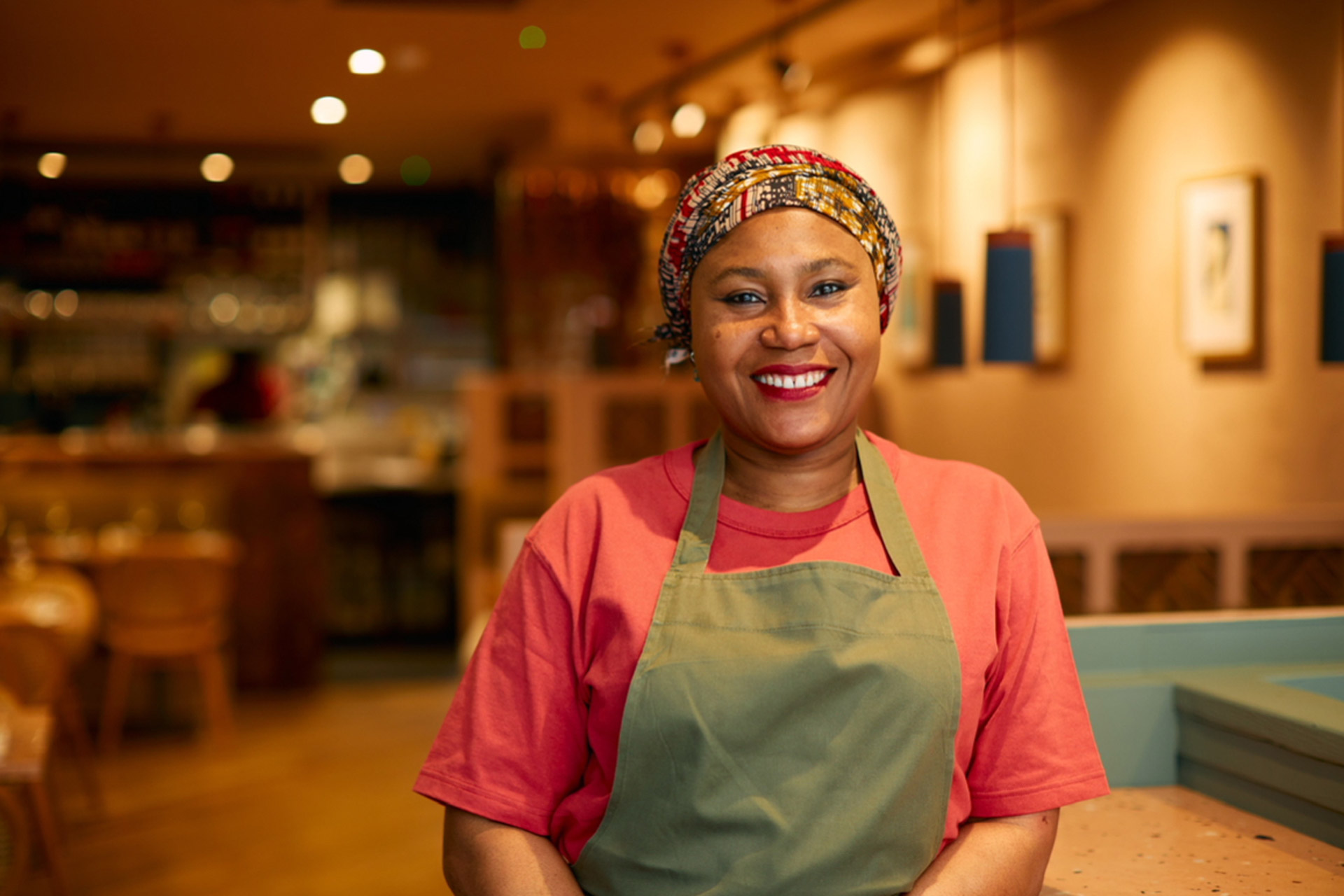
After garnering a cult following through years of hosting supper clubs, Nigerian-born chef Adejoké Bakare (nicknamed Joké) won a competition which allowed her to open her own restaurant. Chishuru originally opened in Brixton in 2020, before outgrowing the site and relocating to Fitzrovia – then going on to secure a Michelin star in 2024.
The menu is a reflection of Bakare’s upbringing: her dad is Yoruba, her mum is Igbo, and she grew up in a Hausa area. This is reflected in Chishuru’s logo, which features three characters from Nsibidi (a proto-language from western Africa) meaning three waters, symbolising those three culinary traditions.
‘Chishuru’ is a Hausa word, which literally means ‘eat in silence’, but more poetically means ‘the silence that descends on the table when the food arrives’. The food at Chishuru is not supposed to be an authentic copy of food you might find in west Africa, rather it’s the food of Joké’s heritage with a London twist. Below, she tells her story to C&TH.
Adejoké Bakare On The Success Of Chishuru
When did you first start cooking?
I learned from my paternal grandmother. As the oldest sibling, I was often tasked with cooking for the family. I became interested in learning about food, and experimented a great deal on my dad, the poor man! I ran a fish and chip cart while I was studying biological sciences at Kaduna, northern Nigeria – it was just something I did from time to time but it was very popular, especially with American and Asian students. Then, years later, after I moved to the UK, I sold pies and akara and puffpuff from a van outside my church in southeast London on Sunday mornings. After that, I ran a couple of supper clubs.
What made you make the leap into food?
I was becoming more and more interested in food – I had always dreamed of having my own restaurant – and then I saw an ad in the local London paper, Metro, for a competition to get a three-month pop up restaurant. To my amazement, I won. That was in early 2019 but it wasn’t until September 2020 that it opened. The pop up was only supposed to last three months, but Jay Rayner, the famous food critic of the Observer, came in and gave us a rave review, and then Brixton Village asked me to make it permanent.
After TimeOut named Chishuru the ‘best restaurant in London’ in April 2022, it became apparent that we had outgrown the space – we didn’t even have our own bathrooms! So my business partner Matt and I started looking for central London premises – we knew we needed to be central because of the number of foreign visitors we were getting. We closed Brixton in October 2022 and I did a couple of popups while we waited for the restaurant to open. Then we finally opened the Fitzrovia site in September 2023.
What has been your biggest obstacle?
London landlords were not very interested in having a west African restaurant in their premises. We were flatly refused sites we wanted, and for a while with our current site it looked like the deal would fall through and we would lose everything. Summer 2023 was very challenging indeed! The answer was persistence, and self-belief. I just refused to give up.
Why do you describe your restaurant as ‘modern West African’?
I was born and raised in Nigeria but there’s no such thing as ‘Nigerian cuisine’; it’s a huge country with many peoples and culinary traditions that go across borders. For example, some northern Nigerian dishes you are more likely to find in northern Ghana than southern Nigeria. My parents are Yoruba and Igbo respectively, and I grew up in a Hausa area, so at Chishuru you will see elements of all those culinary traditions on our menu.
Your website says Chishuru is ‘not a fine dining restaurant’, why is that?
My ambition was always that Chishuru should feel homely and welcoming; so many of the traditions of fine dining run against that. Also, since winning our Michelin star, we’ve had a small number of customers coming in with strange expectations; that we shouldn’t play background music, or there should be a staff member topping up your wine and water constantly. Michelin recognised some years ago that you can get great food in informal settings, and you don’t need to have linen tablecloths or a man in a golden grapes badge upselling you on wine to get a star; they emphasise that stars are only given in recognition of the quality and consistency of the food.
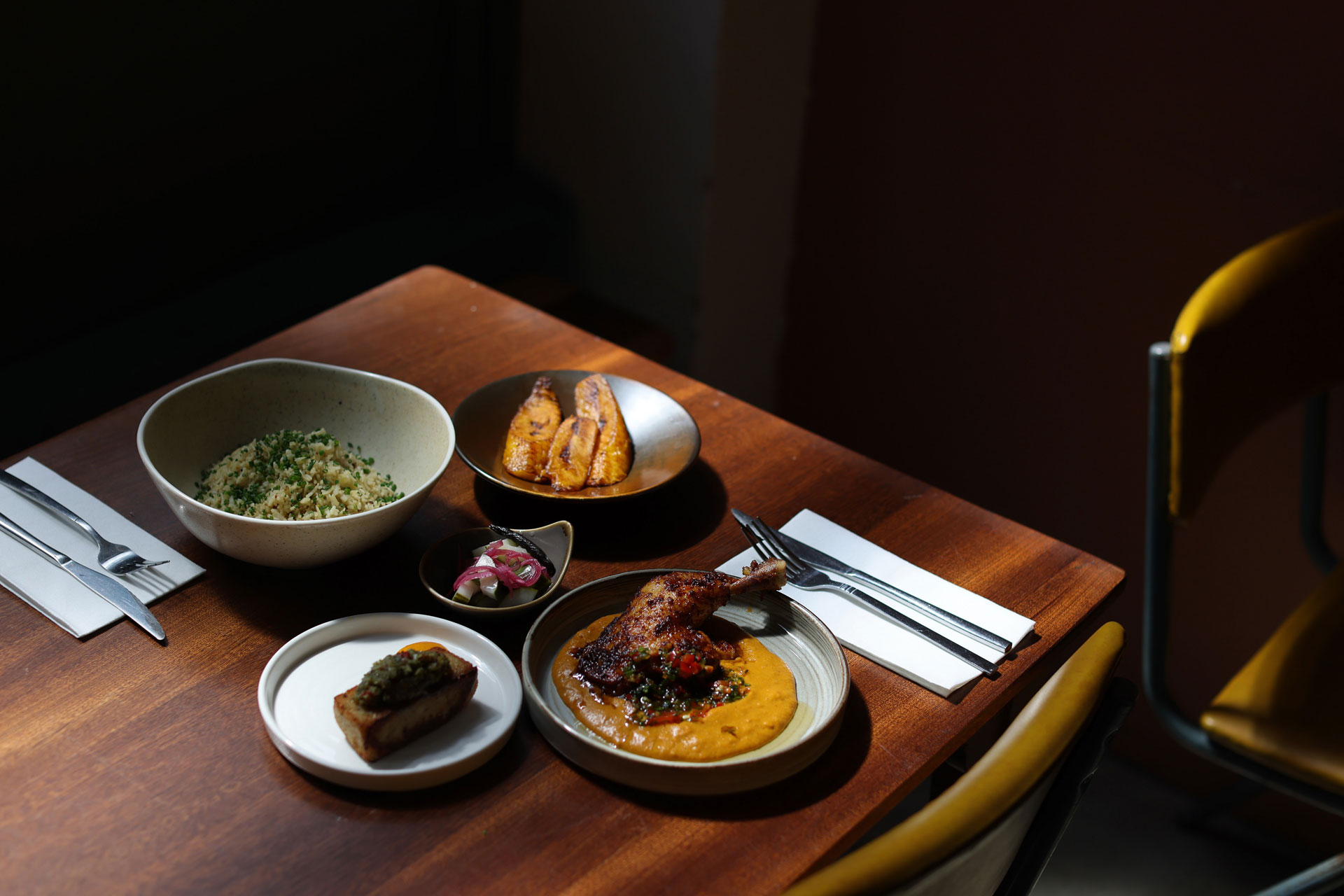
Chishuru
How hard is it to get your ingredients in London?
I’ve found it impossible to get good plantain from normal restaurant suppliers, so I have boxes and boxes driven up from Brixton Market twice a week. I head to Dagenham for specialist spices, and for yaji (a spice blend for grilled meats) I get this made for me by someone I know in Nigeria.
What’s your favourite dish on the menu?
One dish that I’ve been making since the beginning is ekuru. It’s a wild watermelon seed cake, topped with a pumpkin seed pesto and served with a Scotch bonnet sauce. Like a lot of my food, it’s a little London twist on a dish from my childhood.
What do you do on your days off?
I rest! Right now, running the restaurant is all-consuming. Otherwise you’ll find me on the sofa in front of a long-running Nollywood, Bollywood or K-drama series, or eating out in someone else’s restaurant.
You’re the first Black female Michelin-starred chef in the UK. What do you think is the significance of this?
You can’t be what you can’t see. I hope my star gives inspiration to others to put themselves forward.
What are your hopes and dreams for the future?
We’re hoping to move Chishuru to a larger location, and to open a more casual grill concept in its place. There’s so much more to do with this food.
Find out more at chishuru.com


